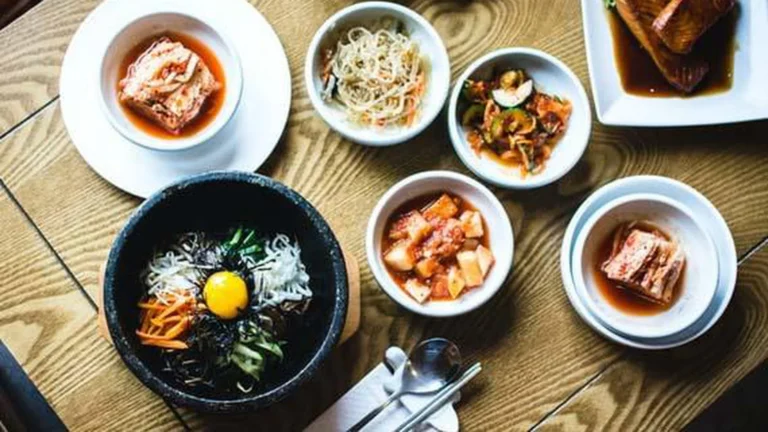The aroma of a home-cooked meal used to define Ugandan evenings — the simmering beans, the frying onions, the warmth of family. But lately, the sound of sizzling pans has been replaced by the buzz of delivery notifications.
Across Kampala and beyond, ordering food is no longer a luxury — it’s a lifestyle. From busy professionals to content creators, more Ugandans are choosing convenience over the traditional “from-scratch” meal.
Here’s a deep dive into why food delivery apps and restaurant takeouts are winning over home kitchens across the country.
🍛 1. Rising Food Prices Make Cooking Expensive
The cost of preparing a home meal has skyrocketed. Market prices for basic ingredients like tomatoes, onions, and cooking oil keep climbing, and even raw food deliveries come with hidden costs like packaging and transportation.
It’s often cheaper — and easier — to order a fully cooked meal from your favorite spot than to buy ingredients, cook, and clean up afterward.
💬 “Cooking at home used to save me money,” says Sharon, a 27-year-old student in Kampala. “Now, one grocery trip costs more than two food orders on Jumia Food.”
⚡ 2. Fast Food Fits Uganda’s Fast-Paced Lifestyle
Urban life is busier than ever, and fast food has become the go-to for city dwellers juggling multiple hustles.
From boda riders rushing through traffic to influencers filming back-to-back content, time is the new luxury.
Fast-food chains like KFC, Café Javas, and local vendors have mastered quick service and flavor — something home cooking can’t always compete with when you’re short on time.
💡 3. High Electricity Costs & Lack of Fridges
Another hidden reason people avoid cooking? Power bills.
Electricity prices in Uganda continue to rise, making cooking and food storage expensive. Many homes — especially in rented apartments — don’t have fridges, meaning leftovers go to waste.
Ordering ready meals feels smarter when food delivery is instant and reliable.
💬 “Why pay for a fridge when I can get hot food delivered in 20 minutes?” jokes Joel, a bachelor living in Bukoto.
💕 4. More Single People, Less Cooking
Uganda’s youthful population is staying single longer — and singles cook less.
For many young professionals and students, ordering food is easier than spending an hour in the kitchen for one person. Plus, social dining — hosting friends or partners — often means grabbing takeout from favorite hangouts instead of cooking for guests.
👨👩👧 5. Smaller Families, Simpler Meals
Gone are the days of ten-person family dinners. The modern Ugandan household is smaller — often just a couple or a family of three.
Smaller households prefer quick, ready-made meals that don’t require the planning, cleaning, and leftovers of big cooking sessions.
Ordering food offers flexibility — you eat what you crave, when you crave it.
🌃 6. Nightlife Culture Is Booming Again
Kampala’s nightlife has bounced back stronger than ever post-pandemic. Between themed parties, influencer events, and networking mixers, there’s a social event every night of the week.
Partygoers often rely on late-night food deliveries to recover after long nights out. Restaurants and fast-food joints have adapted, offering 24-hour menus and hangover-friendly comfort food.
💻 7. Work & Hustle Culture Leaves No Time to Cook
Work-from-home setups, digital gigs, and influencer marketing have blurred the line between work and rest.
When your job lives on your phone or laptop, ordering food becomes a natural part of the grind.
Professionals are spending more time online — posting, editing, and networking — and less time worrying about dinner prep.
💬 “Between editing videos and managing my socials, I barely have time to boil water,” laughs influencer Tracy Melon. “Food delivery saves my sanity.”
📱 8. Social Media Makes Delivery Cool
Let’s be real — food delivery is no longer just convenient, it’s trendy.
Instagram and TikTok are flooded with posts of takeout boxes, aesthetic plating, and #Foodie moments. Restaurants collaborate with influencers to make delivery experiences more social, stylish, and shareable.
It’s now part of the urban identity: if it’s not on your story, did you even eat it?
🌍 9. Global Culture, Local Shift
As more Ugandans travel, study abroad, or connect globally online, food delivery culture feels normal.
Apps like Jumia Food, Glovo, and Bolt Food have localized global trends — offering everything from Rolex to sushi with just a few taps.
And when enough people start doing it, it becomes the cultural norm.
💬 “At first, I ordered food once in a while. Now, I barely touch my gas cooker,” admits Brian, a corporate worker in Ntinda.
🎁 10. Competitive Offers & Discounts
The delivery boom has sparked fierce competition between restaurants and apps — which benefits the customer.
Daily discounts, flash sales, and free delivery deals make ordering too tempting to resist.
Some restaurants even reward loyal customers with points and exclusive menu items. It’s convenient, affordable, and addictive.
💬 “It’s like Netflix for food — once you start, it’s hard to stop,” one user joked online.
🍽️ The Bigger Picture: Convenience Is King
Uganda’s relationship with food is evolving. While home-cooked meals will always hold emotional and cultural value, convenience now reigns supreme.
From inflation and electricity costs to lifestyle changes and global influence, the kitchen is slowly being replaced by the delivery app.
And as food brands compete to make the experience even smoother — through faster delivery, healthier menus, and smarter packaging — the trend is only expected to grow.
So the next time you hit “order now,” don’t feel guilty. You’re not lazy — you’re living in the future of food culture.
🔥 Final Thought
Would you rather cook or order? Tell us in the comments below — and stay tuned to The Pop Radar for more lifestyle and culture stories shaping Uganda’s new generation!





